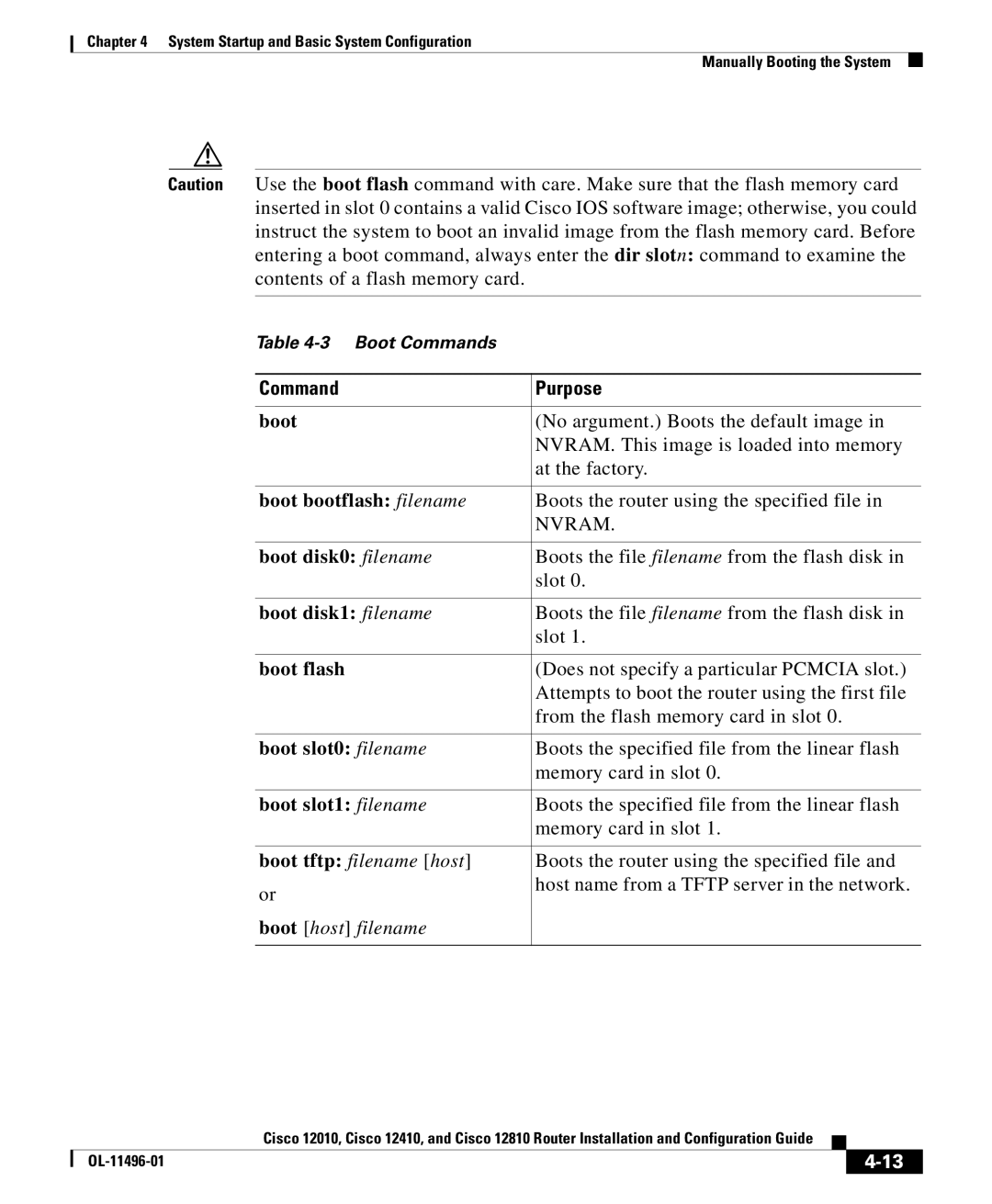
Chapter 4 System Startup and Basic System Configuration
Manually Booting the System
Caution Use the boot flash command with care. Make sure that the flash memory card inserted in slot 0 contains a valid Cisco IOS software image; otherwise, you could instruct the system to boot an invalid image from the flash memory card. Before entering a boot command, always enter the dir slotn: command to examine the contents of a flash memory card.
Table
Command | Purpose |
|
|
boot | (No argument.) Boots the default image in |
| NVRAM. This image is loaded into memory |
| at the factory. |
|
|
boot bootflash: filename | Boots the router using the specified file in |
| NVRAM. |
|
|
boot disk0: filename | Boots the file filename from the flash disk in |
| slot 0. |
|
|
boot disk1: filename | Boots the file filename from the flash disk in |
| slot 1. |
|
|
boot flash | (Does not specify a particular PCMCIA slot.) |
| Attempts to boot the router using the first file |
| from the flash memory card in slot 0. |
|
|
boot slot0: filename | Boots the specified file from the linear flash |
| memory card in slot 0. |
|
|
boot slot1: filename | Boots the specified file from the linear flash |
| memory card in slot 1. |
|
|
boot tftp: filename [host] | Boots the router using the specified file and |
or | host name from a TFTP server in the network. |
| |
boot [host] filename |
|
|
|
|
| Cisco 12010, Cisco 12410, and Cisco 12810 Router Installation and Configuration Guide |
|
|
|
|
| ||
|
|
| ||
|
|
|
